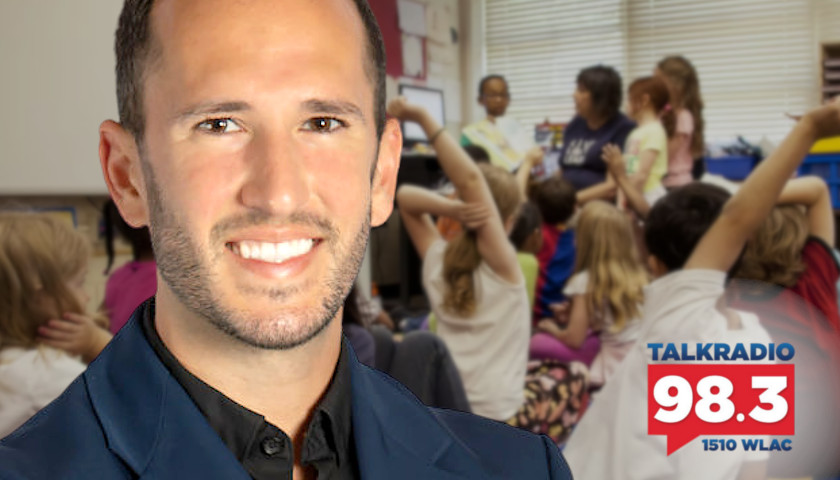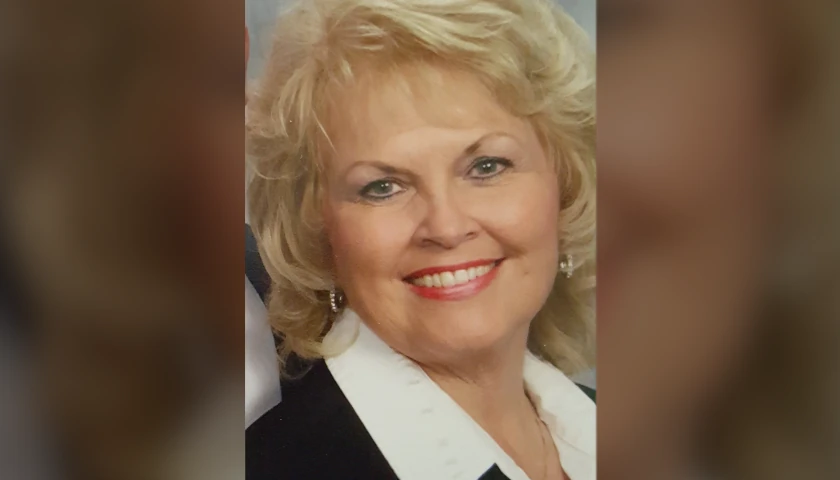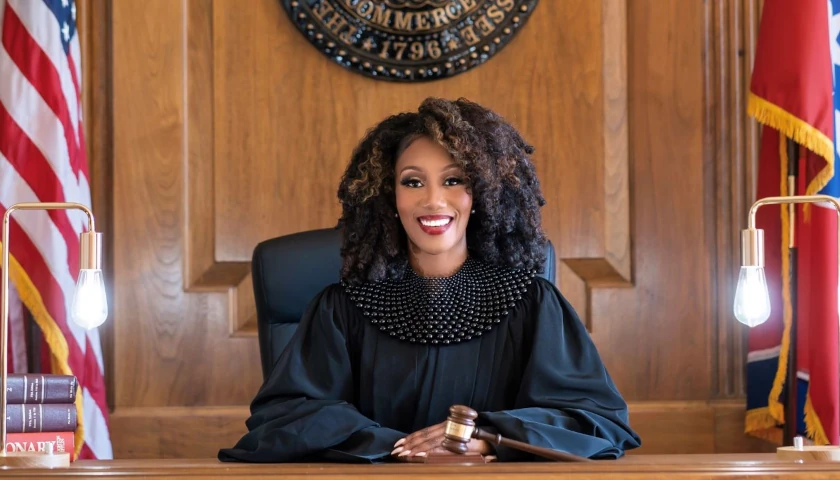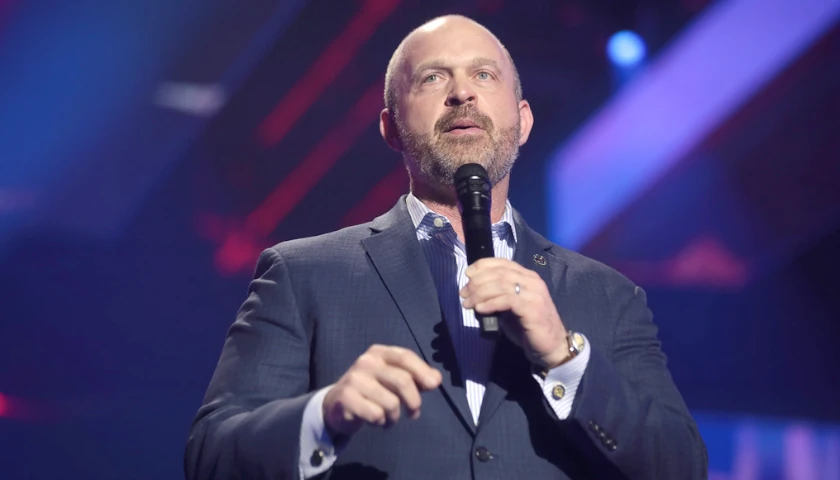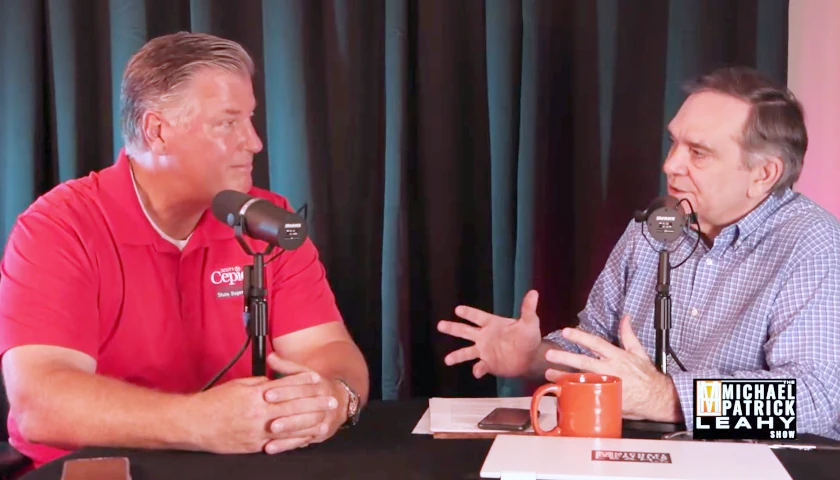Live from Music Row, Wednesday morning on The Tennessee Star Report with Michael Patrick Leahy – broadcast on Nashville’s Talk Radio 98.3 and 1510 WLAC weekdays from 5:00 a.m. to 8:00 a.m. – guest host Gulbransen welcomed Corey DeAngelis, national director of research at School Choice, to the newsmaker line to discuss the divide between parents and how they want to educate their children.
Gulbransen: On the newsmaker line we have school choice expert Corey DeAngelis. Corey has a heck of a résumé. Your Twitter says you are the national director of research at School Choice.
Now, I know you’ve done work with Cato Institute, Reason Foundation, and a number of others, and I think you got named Forbes 30 Under 30 at one point in time.
DeAngelis: Yeah, totally. I’m no longer under 30, but yeah, thanks so much.
Gulbransen: No one is anymore. But yes. (Laughs) And of course, everybody in the studio, feel free to ask Corey whatever you’d like.
But we were chatting the other night. Do you know yet how those Iowa primaries turned out for school choice, or do we still need to do more research into that?
DeAngelis: Yeah. There’s still some that there might be a recount in one of the races, but from what we can tell, I was up really late just to let everybody on the line know, watching these until past midnight Eastern time, watching the votes come in.
And it looks like about nine out of the 11 candidates endorsed by AFC Action Fund and its affiliates are winning or won their races at an 82 percent win rate. And these were, I think, five incumbents that lost their seats as well.
It really goes to show you that leadership is really important. And the issue of school choice is important because, in these races, one of the biggest differentiators between the candidates was the issue of school choice.
Look, school choice is a Republican Party platform issue, yet you have some so-called Republicans coming out against the party platform and against parental rights and education at the worst time possible.
It’s like they didn’t learn anything from the Virginia gubernatorial election where you had Terry McCullough say, “I don’t think parents should be telling schools what they should teach” – didn’t work for them.
I think more and more politicians in Iowa and across the country are seeing that supporting parental rights – and the best way to do that is to fund the students directly and empower parents to actually choose the education provider that works best for their kids. It’s the right thing to do, but it also can be politically advantageous as well.
Gulbransen: It gives the audience a little bit of background. So last night was in the Iowa State House primaries, among other things, and a slate of sitting state reps did not vote in favor of school choice.
And there were pro-school choice, the good kind of pro-choice, pro-school-in-all-caps-choice candidates that they were going after. So there we go. We’ll keep monitoring that. Dr. Carol Swain has a question for you, Corey.
Swain: Corey, I’ve been really grappling with the parental choice, because like you, I’m an advocate of parental choice. But with the political Left, if you support parental choice, you have to support it for them, too.
And then you get to the situations where there are some parents that drag their kids to drag shows in nightclubs, as was done in Dallas last week.
And I think that we definitely need the school choice and those parents who want their kids to have Critical Queer Theory, Critical Race Theory, Critical Feminist Theory, somehow we’re going to have to separate our children to have true school choice and parental choice.
DeAngelis: I think we’ve got to be careful not to make perfect the enemy of the good because the current situation is totally far from perfect. A lot of this stuff is happening, or at least more likely to happen in the government-run school.
And the problem that I see is that we force millions of families, particularly low-income families, to send their kids to these residentially assigned, government-run schools with no accountability whatsoever.
So they don’t have a strong incentive to not irritate parents. And I think a lot of these so-called public schools aren’t focusing on the basics because they don’t have that bottom-up accountability.
And if families could vote with their feet, if we had true school choice, all of the money following the child to the education provider that best aligns with their values, I think you’d also have the side benefit of competition leading to the public schools focusing more on the basics and education as opposed to indoctrination.
Swain: I agree with you, and I’ve always said that we need to save our own children, but we also have to fight for other people’s children, and those are the ones that are stuck in the schools.
And so that’s all I had to say because I’ve seen some parents on the Left saying “I want my child to have all of this stuff” that those of us who are more conservative reject.
DeAngelis: I was just going to add on, this is something that I think a lot of people grapple with. But at the same time, I think we got to pick our poison and in the current system, there’s no exit option. There is no equity.
You have these entrenched inequities in the current system, the least advantaged don’t have school choice. The most advantaged already have some form of school choice that they can pay out-of-pocket for private school tuition and fees.
And I think the reality is parents across the nation, they’re just going to disagree about how they want their kids raised and how they want their kids educated.
And I think the only way forward out of this mess of battles in the government-run school system is through freedom rather than force, is to allow the money to follow the child.
Because the main problem that I see is a one-size-fits-all system that, by definition, it’s just not going to work for a diverse population that just disagrees about how they want their kids raised.
Carmichael: Quick question for you. Who are the biggest opponents of school choice, and which organizations?
DeAngelis: Yes, we have the American Federation of Teachers, the National Education Association. These are the two largest teachers’ unions in the United States. And if you look at their campaign contribution history, for example, AFT, who is headed by the least-liked union president over the past couple of years in particular, Randy Weingarten, who still gaslights us to this day about, oh, no, actually, she was trying to reopen the schools when really her Union lobbied the CDC to make it more difficult to reopen the schools.
And you had her state affiliates like the Chicago teachers’ union making interpretive dance videos to protest going back to work. and striking into 2022, where “two weeks to slow the spread” turned into two years to flatten a generation of kids.
So you have these public-sector unions that lobby for their own interests at the expense of families and they did it over the past two years, at the worst time possible, in the middle of a pandemic when families were just trying to search for the best education options for their kids.
Now, they kept the public sector schools closed, and those funds that they pour into the government school system funnel straight back to the Democratic party.
Randy Weingarten’s teachers’ union for example, in the 2022 election cycle, so far, 99.99 percent of their campaign contributions have gone to Democrats as opposed to Republicans.
Listen to the interview:
– – –
Tune in weekdays from 5:00 – 8:00 a.m. to The Tennessee Star Report with Michael Patrick Leahy on Talk Radio 98.3 FM WLAC 1510. Listen online at iHeart Radio.
Photo “Corey DeAngelis” by American Federation for Children.

